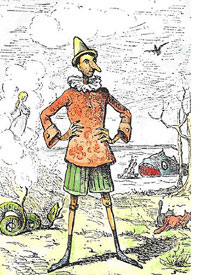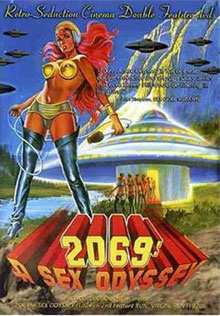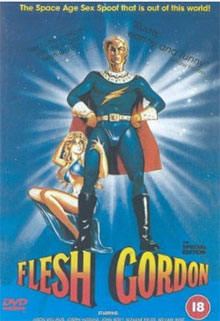Apparently the Mexican director plans to direct all of my favorite books—literally, all of them. First there was the announcement that he was going to direct The
Hobbit. Then came the news that he would take on both Frankenstein and Dr. Jeckyll and Mr. Hyde, along with whispers that he wants to shoot H.P. Lovecraft’s At the Mountains of Madness. Now, I have received the glorious news that he will be directing a stop-motion version of Pinocchio.
For those who are only familiar with the stickily saccharine Disney version of the story, you’re in for a surprise. Carlo Collodi’s pitch-black parable of a devious little marionette is a subversive satire of 19th century Italian society. Though it was written for a children’s magazine, the serialized story features an aggressive and malicious young boy (not unlike his picaresque counterpart Tom Sawyer), whose folly and frivolity get him him into increasingly dire situations. We see little P smash the talking cricket during one of his tantrums, convincing the cops to arrest the unsuspecting Gepetto, and, in the story’s intended conclusion, the mischievous protagonist actually ends up hung to death. How’s that for a bedtime story?











